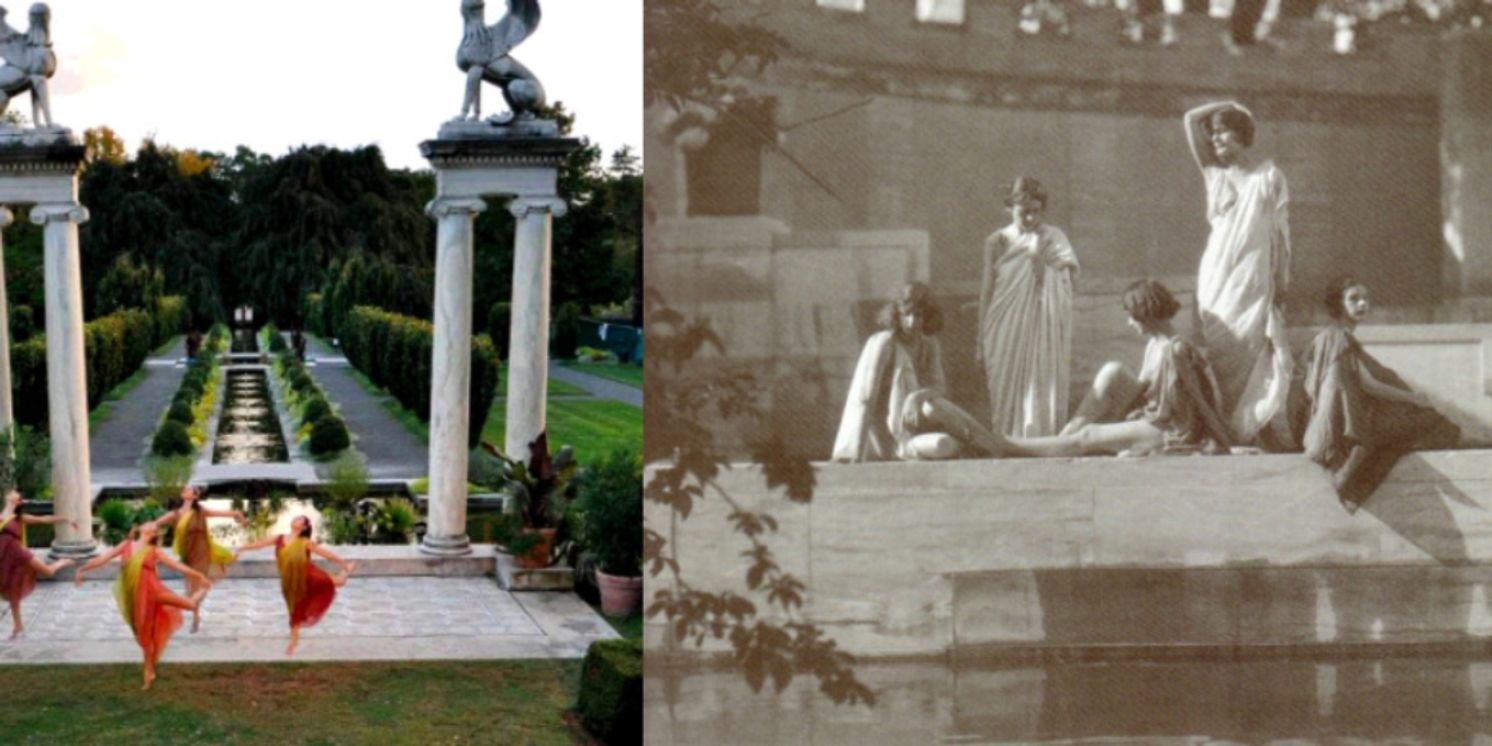Belilove Duncan Dance Company At Untermyer Gardens, September 3
The first half of the program will feature new creative works by Lori Belilove set to music by Max Richter, Vivaldi, and Bach.

![]()
Lori Belilove's Isadora Duncan Dance Company returns to the exquisite setting of Untermyer Gardens in Yonkers with a program of dances by Isadora Duncan, along with original works by Belilove, including her "Tribute to Ukraine," and her new "Ode to Wild Beauty," Sunday September 3 at 5 PM.
The first half of the program will feature new creative works by Lori Belilove set to music by Max Richter, Vivaldi, and Bach. The evening will include signature works by Isadora Duncan to the music of Chopin, and Belilove's new piece titled “Tribute to Ukraine” honoring the heroism, valor, and grit of the Ukrainian people. Belilove, herself of Ukrainian ancestry, takes her inspiration from Isadora Duncan's heroic dances (Marche Heroique, Varshavianka) that evoke the cry, the terror, the loss.
Belilove illuminates Duncan's iconic feminist aesthetic with Belilove's own signature works, re-staged and fused seamlessly into a poetic whole by the choreographer. The work-in-progress brings history forward and illustrates the timelessness and accessibility of Duncan's work by quoting her varied female archetypes - heroic, maternal, maiden, gypsy Roma - with modern life. Belilove's vision of Wild Beauty began during her recent residency at the Baryshnikov Center, made possible with support from the NEA.
In 1921, Duncan returned to the USSR to start a school of dance at the invitation of the new Soviet government, whereby she believed she was participating in the formation of a free and heroic society. Ignited, she assimilated her personal passion for political change with a vision of the universal humanitarian fight.
Belilove was inspired to re-stage Isadora's dance Varshavianka (1924) to the Ukrainian National Anthem, in response to the horrors of the current Russian invasion. In the dance, heroes die and are re-born, but ideals outlast the trials and tribulations of war. What began as a single soldier on stage grows to an ever accumulating force as the dancers mourn the dead, share in suffering, and finally rise heroic.
Complimenting Belilove's interpretation of Varshavianka is her original choreography, titled Comrades, reflected in a lone female voice of universal grief. Opening the suite is Duncan's Marche Heroique (1916), staged by Belilove and set to Tchaikovsky's Symphony No. 6, "Pathétique,” III. Allegro molto vivace, where a formidable, proud march inspires the dancers' call to action and endurance.
Belilove, a foremost interpreter of Isadora's work, understands the timeless freedoms Isadora sought - the same freedom that Ukraine seeks, all humanity seeks.
History of Duncan & Untermyer:The historic heritage of Duncan dance and Untermyer Gardens first began in 1923 when Samuel and Minnie Untermyer watched The Isadorables perform at Untermyer Estate Park, then called Greystone, which was Samuel Untermyer's Yonkers estate.
The tradition continued when Isadora Duncan Dancers, the troupe formed under the direction of Irma Duncan returned to the site in 1932. The garden fete, held in the Greek Gardens, was under the auspices of the Women's Division of the Architects' Emergency Committee benefiting unemployed Architects and Daughtsmen.
After Untermyer's death in the 1940′s, the gardens began a long decline. The City of Yonkers took over a portion of the gardens, but until 2010 when the the Untermyer Garden Conservancy was formed, the gardens were basically in ruins. Today, after years of intense work, key features of the gardens have been lovingly recreated.
The restoration of Samuel Untermyer's glorious gardens in Yonkers is a sight not to be missed. Once long forgotten and in ruins, today therenovated Untermyer Park and Gardens is a City of Yonkers public park and a veritable paradise of 43 acres overlooking the Hudson River.
Videos

